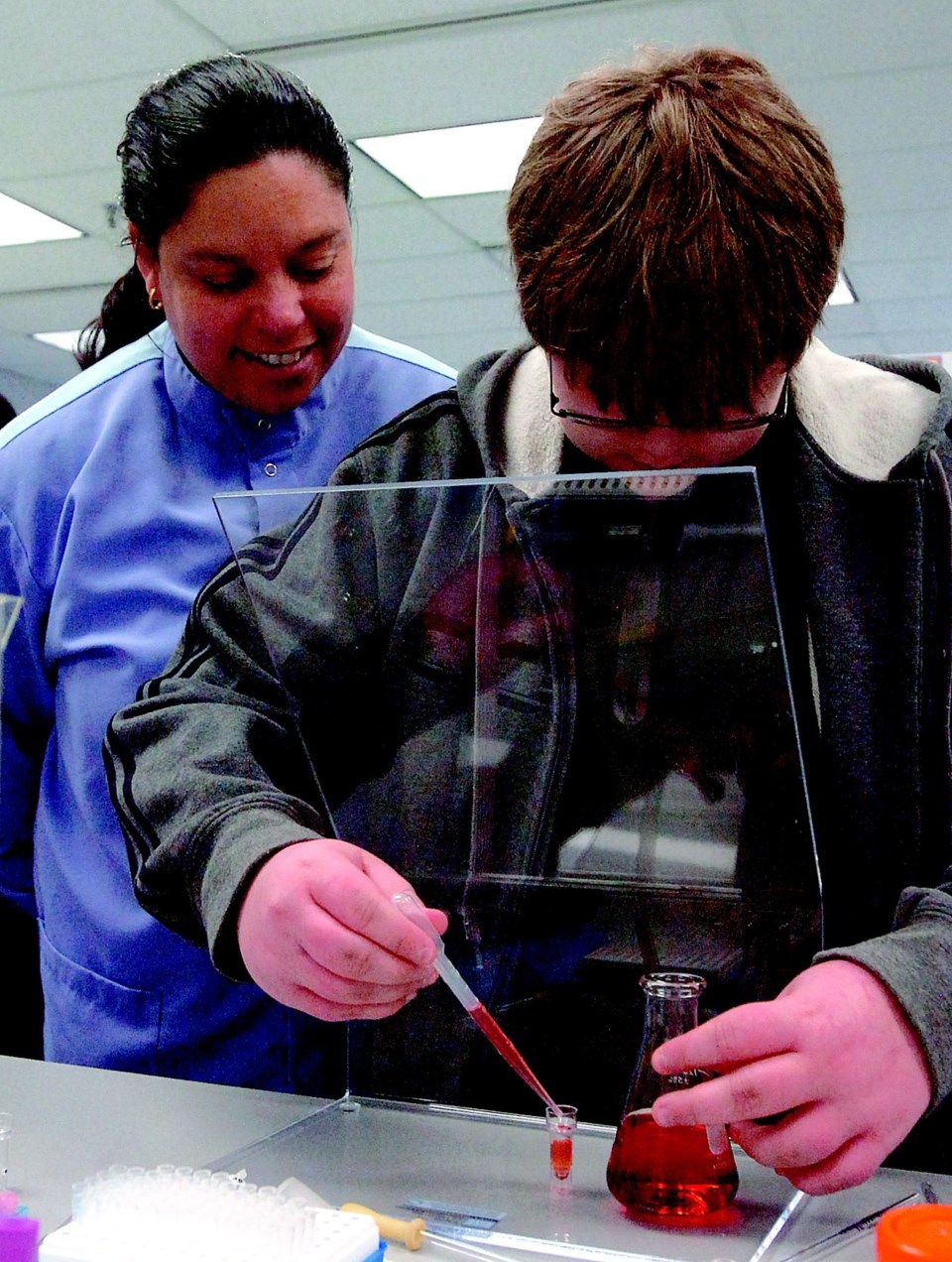Kristine Taylor knew when she signed up for the College of New Caledonia's medical lab technology program she was about to put through a full spectrum of tests to earn that diploma.
But nothing in her background as a French teacher and a full-time mother of two adolescent kids could prepare her for her college workload.
"I never realized how intense the program would be -- this is not for the faint of heart, you have to be committed," said Taylor, 40, who demonstrated some of her duties at the lab tech open house Wednesday at CNC.
"The whole program has been stress. It's been awhile since I've been in school, this is a career change for me. I've been away from teaching for 15 years. Chemistry is a language of its own, learning all the formulas. The workload is heavy and my friends are extremely understanding when I haven't seen them sometimes in a month or two."
Students demonstrated a series of tests used to determine blood types, how tissue samples are sliced and prepared for microscopic inspection, and how bodily fluids are tested for signs of disease.
After three semesters in the classroom, the finish line is now in sight for Taylor and her 21 fellow students, who begin their 39-week hospital practicums in late May, following exams. Taylor and Nicole Paisley have locked up the two practicum positions available at UHNBC and consider themselves lucky they won't have to leave town.
Paisley, 31, finished a four-year undergraduate degree in biochemistry at UNBC and took the lab tech program to increase her job prospects.
"The biochemistry degree had more theory but this one was definitely a tougher program," said Paisley. "At one point we had seven classes in one semester.
"The workload is the most challenging part and you don't do this unless you want to be here. As far as doing the lab tech job, you just have to make sure you follow procedure exactly because that's how the job will be. You have to know anatomy, physiology, chemistry and biology and all the protocol to follow.
"The stool sample lab wasn't much fun. Of all the samples you are required to give, sometimes it can be gross."
Because doctors depend on lab results to base their patient diagnosis, there's no room for error, and students are taught to be meticulous and thorough in the testing process.
"You have to be organized, you have to love science, have great attention to detail, good communication skills and you have to love working with technology because everything is computerized with a lot of instrumentation," said CNC instructor Chris Taruc.
CNC started the program in 2008 in response to a nationwide shortage of trained lab technicians. While their job prospects are good worldwide, practicum posts are getting harder to come by in Canadian hospitals. Because of that, CNC had to limit January's intake of new students to 20.
Murthy Bulusu, a 47-year-old native of India, was working in Campbell River at a fish hatchery when he decided to enrol at CNC. Bulusu is one of only five male students in class of 22, and that gender imbalance is also reflected in the workplace.
"Women do well in medical lab technology because they are detail-orientated and they have patience," said Bulusu, who has a practicum lined up at Vancouver General Hospital. "This is an art, and you have to have a strong technical background and common sense. Once into the program, our tenacity is tested and you have long working hours at this to see how well you adapt to the situation to see how organized we are.
"The ultimate goal at the end of the day is quality patient care."



